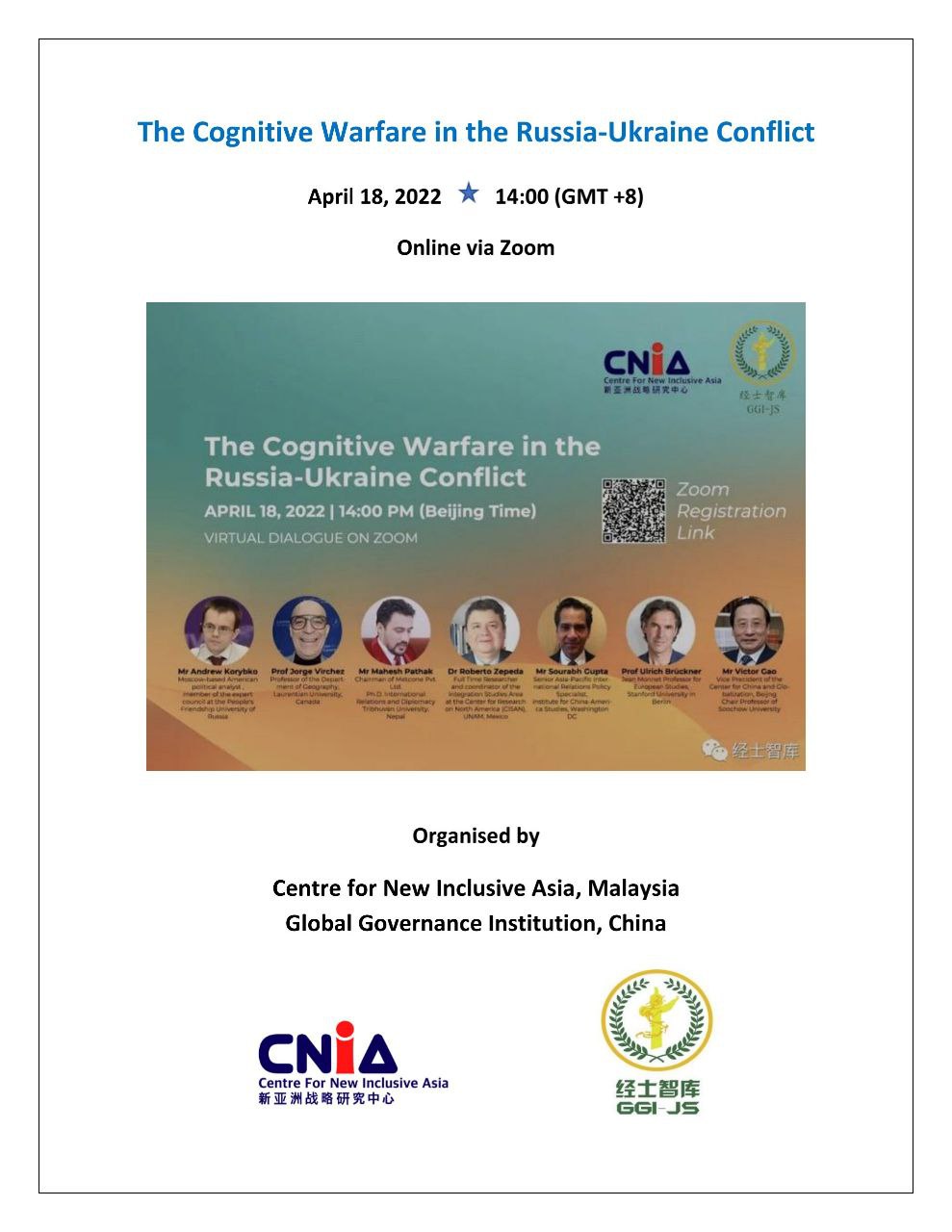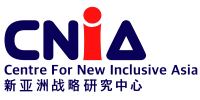
The Cognition Warfare in the Russia-Ukraine Conflict
New technologies are increasingly being used in the cognition domain. Since the Russian-Ukrainian crisis broke out in 2014, a ‘cognition war’, using various kinds of information as weapons, has already been waged between the two countries in warlike emergencies and armed conflicts. This cognition warfare has moved well past the initial stage and continues apace.
‘Cognition warfare’ has long been waged through traditional media and parties involved, and is usually between two hostile/belligerent states. Its persuasive and social engineering roles as persuasion and social engineering applied to altering military tactics were not very prominent. However, with the new emergence and development of social media, which creates a virtual space via the Internet which allows anyone to be included in it, more actors – states, parastatal entities, and even individuals – try to achieve control over the social groups concerned, in order to ‘shape’ their legitimacy (moral, legal, political and so forth) for controversial acts.
As far as this Russia-Ukraine conflict is concerned, amidst the deluge of authentic reports, there has been a spate of misleading news and false information related to the conflict that has flooded traditional and social media. For Russia, it has spread information on channels, apps, and media to justify its invasion, claiming that Ukraine was preparing an attack on Donbas and was planning to attack separatist-held territories there using chemical weapons. On the other side, the use of social media allows interaction and closeness between Ukrainians and people across the globe. These exchanges have helped the Ukrainians feel less isolated, united, and even empowered. By revealing personal stories and videos showing the resulting destruction and misery caused by the war, Ukraine and other countries challenged the authenticity of Russia’s claims and backed up the practices of selective news reporting and new content censorship policies on social media. Meanwhile, governments stress the role of propaganda and political posturing, individuals post and re-post the content they support, and social media gives us clues as to where things may be heading. In this war, information is another weapon, and those who create, process and distract the information influence the trend of the conflict. However, what role these entities are substantially playing, what weight will be given to the impact of the ‘cognition war’, and how the existing international orders and norms will respond to it…… all of these questions remain to be solved.
Under these circumstances, this webinar will address these related issues concerning the ‘cognition war’, and manage to seek solutions to resolve the conflict.
The discussion will cover, but not be limited to, the following specific issues:
1. What does ‘cognition war’ mean in general? How is it being played out in the current Russia-Ukraine conflict?
2. Who are the participants in the ‘cognition war’. What are their practices and objectives? What roles do they play in influencing the perceptions of the Russia-Ukraine conflict? How do they help shape the political legitimacy of the conflicting parties?
3. How does the ‘cognition war’ affect the attitude of different sovereignty states and state actors on the Russia-Ukraine conflict? In what ways has this influence been achieved?
4. ‘Cognition war’ has been observed in military operations led by US and NATO troops in the past, such as those against the former Taliban regime in Afghanistan and Saddam’s regime in Iraq. However, ‘cognition war’ in those cases did not seem to play as significant a role as it does in the Russia-Ukraine crisis. Why is that so? And to what extent can it be attributed to the rise of social media over the past decade?
5. How would ‘cognition war’ influence or shape the discourse on international law and order? Given that, ONLY for the exceptional scenario of the Russia-Ukraine conflict, the NATO narratives have broken many fundamental principles of international human rights law they have upheld as rules of the road, for instance, the freedom of expression, the protection of personal property, and non-discrimination. In what ways would it pose challenges to the existing norms and orders of international law?
6. What are the short- and long-term impacts of ‘cognition war’ on the outcome of the conflict? Given the advantages Ukraine and the Western countries have in the ‘cognition war’ in comparison with Russia, how will the west continue to dominate or monopolize the ‘cognition war’ through the dissemination of information/ disinformation according to their narrative? Given the West have a monopoly on social media platforms such as Twitter and Facebook, how shall the developing countries respond to that in the future conflict with the West?
For those who missed the webinar, The Cognition Warfare in the Russia-Ukraine Conflict, the video recording of the event is available here.![]()

